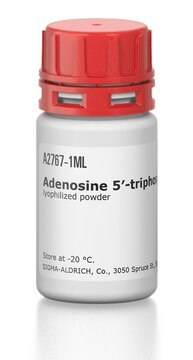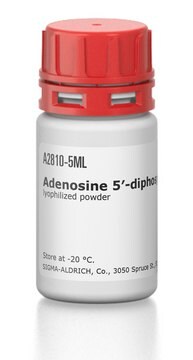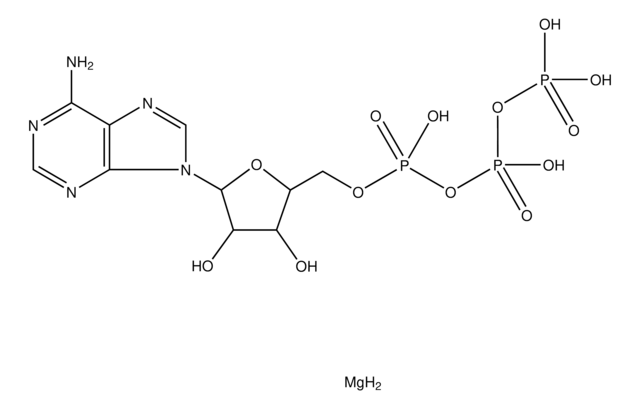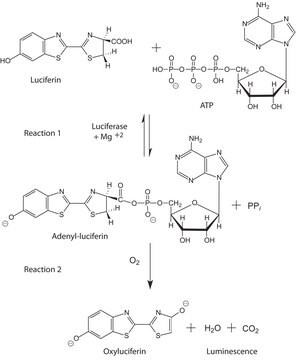A6888
Adenosine 5′-triphosphate–Agarose
aqueous glycerol suspension
About This Item
Recommended Products
form
aqueous glycerol suspension
Quality Level
extent of labeling
≥1 μmol per mL
matrix
cross-linked 4% beaded agarose
matrix activation
cyanogen bromide
matrix attachment
ribose hydroxyls
matrix spacer
11 atoms (adipic acid dihydrazide)
storage temp.
−20°C
SMILES string
[X]Nc1ncnc2[n](cnc21)[C@@H]3O[C@@H]([C@H]([C@H]3O)O)CO[P](=O)(O[P](=O)(O[P](=O)(O)O)O)O
Looking for similar products? Visit Product Comparison Guide
Related Categories
Application
Physical form
Storage Class Code
10 - Combustible liquids
WGK
WGK 3
Flash Point(F)
Not applicable
Flash Point(C)
Not applicable
Choose from one of the most recent versions:
Certificates of Analysis (COA)
Don't see the Right Version?
If you require a particular version, you can look up a specific certificate by the Lot or Batch number.
Already Own This Product?
Find documentation for the products that you have recently purchased in the Document Library.
Our team of scientists has experience in all areas of research including Life Science, Material Science, Chemical Synthesis, Chromatography, Analytical and many others.
Contact Technical Service




